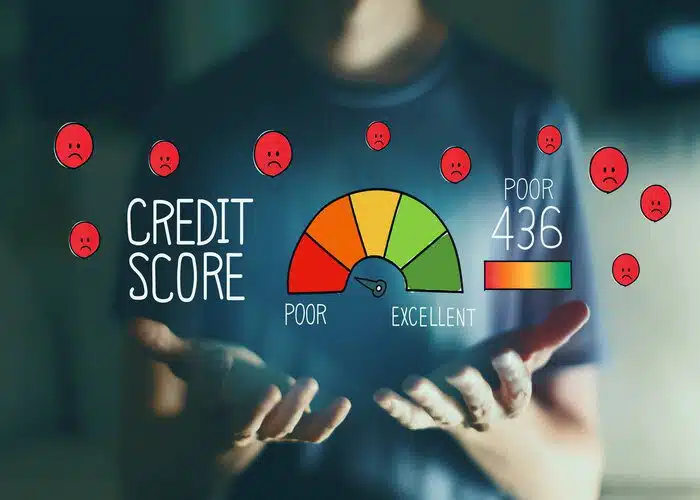What do lenders consider when assessing a home loan application?
When preparing to apply for a home loan, it can be helpful to think in terms of what the lenders will look for. You can then determine how your own situation holds up. A mortgage broker will always be able to tell you how a lender is likely to view your home loan application but it’s useful to have an understanding of the topic to inform your conversations with your broker.
Put simply, the lenders will assess your:
- Deposit
- Income
- Credit rating
- Spending habits
- Quality of information in the application.

How much deposit do you need to get a mortgage?
Deposit for first home buyers
Most main bank lenders will accept 10% deposit for new builds and 20% deposit for existing properties. As a first home buyer you can use your KiwiSaver, as long as you’ve been in the scheme for at least three years. You may also be eligible for the First Home Grant.
You might be lucky and have parents who are able to gift or lend you money to get into your first home. But be aware that if the money is a loan the lender will take the repayments into account when calculating your income.
If you have less than 20% and want to buy an existing property you may be able to get a loan under the First Home Loan scheme, if you meet the criteria. Otherwise you may still be eligible for a mortgage with a bank or non-bank lender, depending on their current lending policy.
At the time of writing ANZ Bank have announced that they’ve “opened their floodgates” for existing clients with less than 20% deposit. Talk to us about whether you could get a low equity loan.
Next home buyers
As above, most main bank lenders will accept 10% deposit for new builds and 20% deposit for existing properties. ANZ Bank is currently accepting current customer applications with less than 20%. You can use the proceeds of the sale of your current house for the deposit, or you can get a bridging loan to buy your next house prior to selling your current one. In that case you would use the equity in your current house to get the bridging loan.
Deposit for investment property buyers
Most main bank lenders will allow for a 10% deposit for investment property new builds; whereas you generally need a minimum 40% deposit to purchase any established property as an investment.
Some non-bank lenders will assist a client with less than 20% deposit for a new build investment property, however the ‘difference’ in deposit needs to be made up via a external loan (which the lender can organise as a separate loan). This would be factored in for servicing purposes. To qualify under these circumstances, the new build would need to have the title and code of compliance certificate issued and purchase settled within 90 days following loan approval.
You can use the equity from any of your current properties towards a deposit.

How much income do you need to get a mortgage?
The answer of course depends on how much you’re borrowing. To get an idea, check out our mortgage calculator. Enter the amount your looking to borrow, set the period to 30 years and the interest rate at 7%. That is the approximate period and rate the banks test your affordability at. Note however that some banks require a 25 year term for investment properties. The period they will use also depends on how many working years you have left to repay your mortgage.
The calculator will then tell you what your repayments would be. If your income doesn’t perfectly match the bank’s requirements, don’t panic. Non-bank lenders have a different criteria and can often accommodate applicants that the banks decline.
Be aware that any debt you have will be taken into account when the lender calculates your income. They’ll also make the calculations on the assumption that your credit card and overdraft limits will be maxed out. They don’t take into account whether you never use the overdraft or if you pay off your credit card each month. For that reason, reduce down your credit card and overdrafts limits as much as possible. Or even better, cancel them outright! If you’re concerned about your debt, have a look at our blog on getting a mortgage when you have debt.
For those that are self-employed, the main banks will generally require at least two years of proven income. This means two years of accountant financials and IR tax summaries. If you have been in business for less than two years, have a read of our blog how to get a mortgage if self-employed for less than two years.
How does my credit score impact my home loan application?
It depends on the lender. Banks are reasonably conservative when it comes to assessing an applicant’s eligibility based on their credit score. Non-bank lenders are more flexible and risk tolerant, however they do charge higher interest rates as a result. See our blogs getting a mortgage with bad credit and getting a mortgage after being discharged from bankruptcy.
How do my spending habits affect my home loan application?
This topic is an evolving one. The recent Credit Contracts and Consumer Finance Act (CCCFA) has made banks much more conservative in their approach.
Previously, the banks took the practical view that people would change their spending habits once they had a mortgage. So they weren’t too concerned about your spending; unless it appeared that your spending was out of control (ie going into overdraft on a regular basis). They now require three months of bank statements that prove your current spending habits would allow for the mortgage payments.
To meet this requirement, use our mortgage calculator to find out your approximate fortnightly mortgage repayment would be, then minus any rent you pay. The figure you’re left with is how much you need to save each fortnight over the three month period. These savings will be the proof that your spending habits can accommodate the repayments.
At the time of writing (February 2022) many in the mortgage industry are lobbying for the CCCFA to be clarified to enable the banks to be less risk adverse. In the meantime, non-bank lenders have stayed more flexible in their approach so will be a good option for some.
The expected changes or updates to the mortgage lending criteria is expected to minimise or at least reduce the unintended negative consequence from the new CCCFA legislation.
The quality of the information in the home loan application matters
What happens if you don’t provide the correct documentation to prove all of the above? At best you’ll have to go backwards and forwards with the lender, at worst they may decline you outright. This is where a mortgage broker adds a lot of value, we manage the application process to ensure you’re putting your best foot forward when applying for a loan. If you’re looking to purchase a property or restructure a current mortgage, get in touch and we’ll help you get sorted.